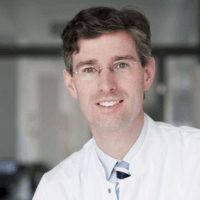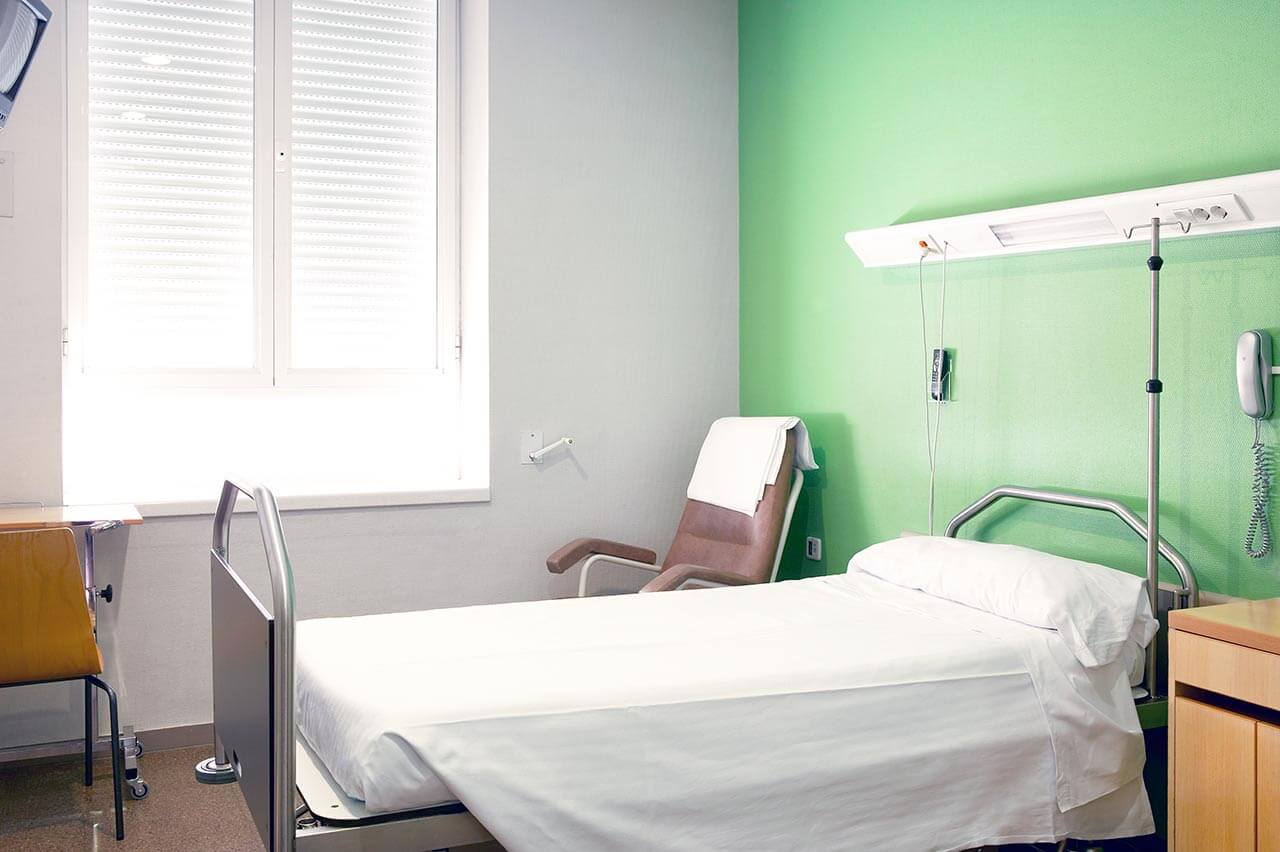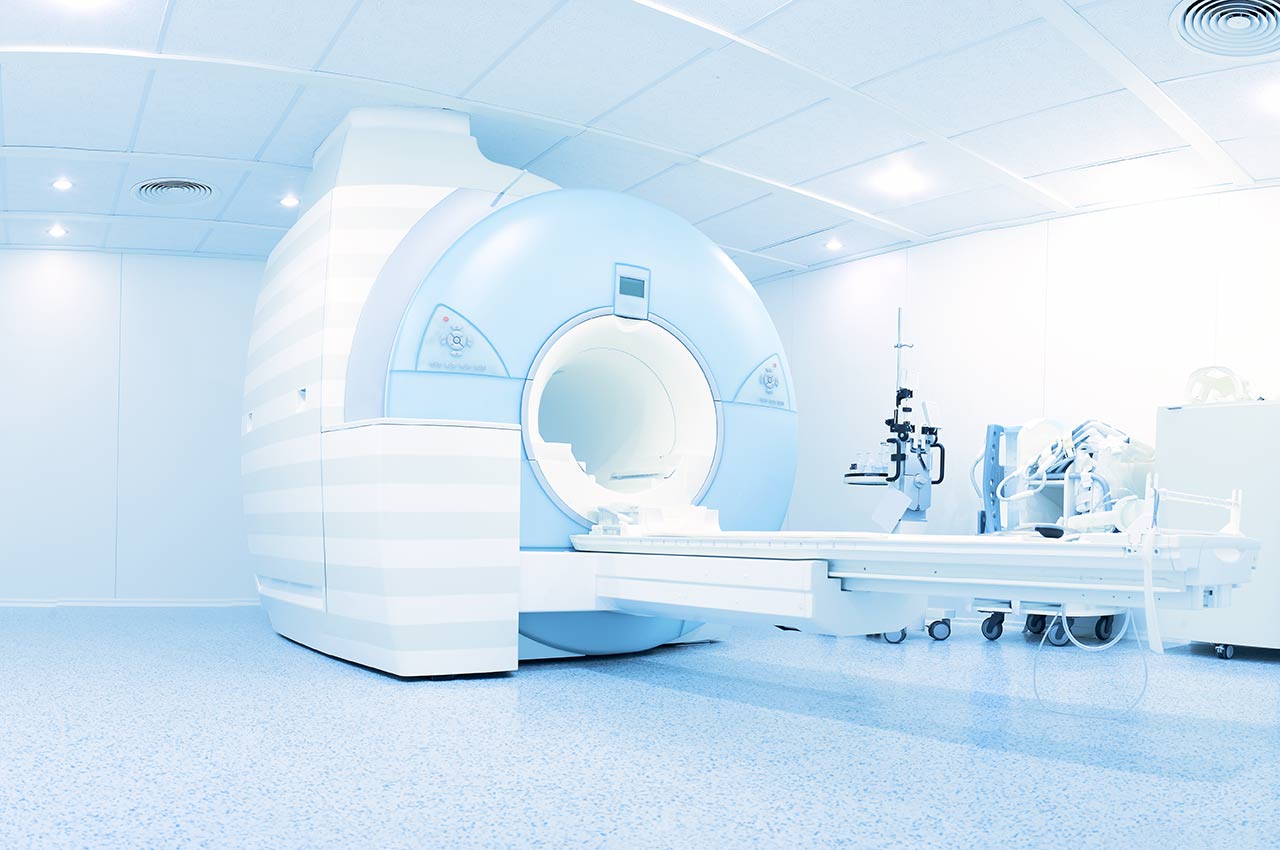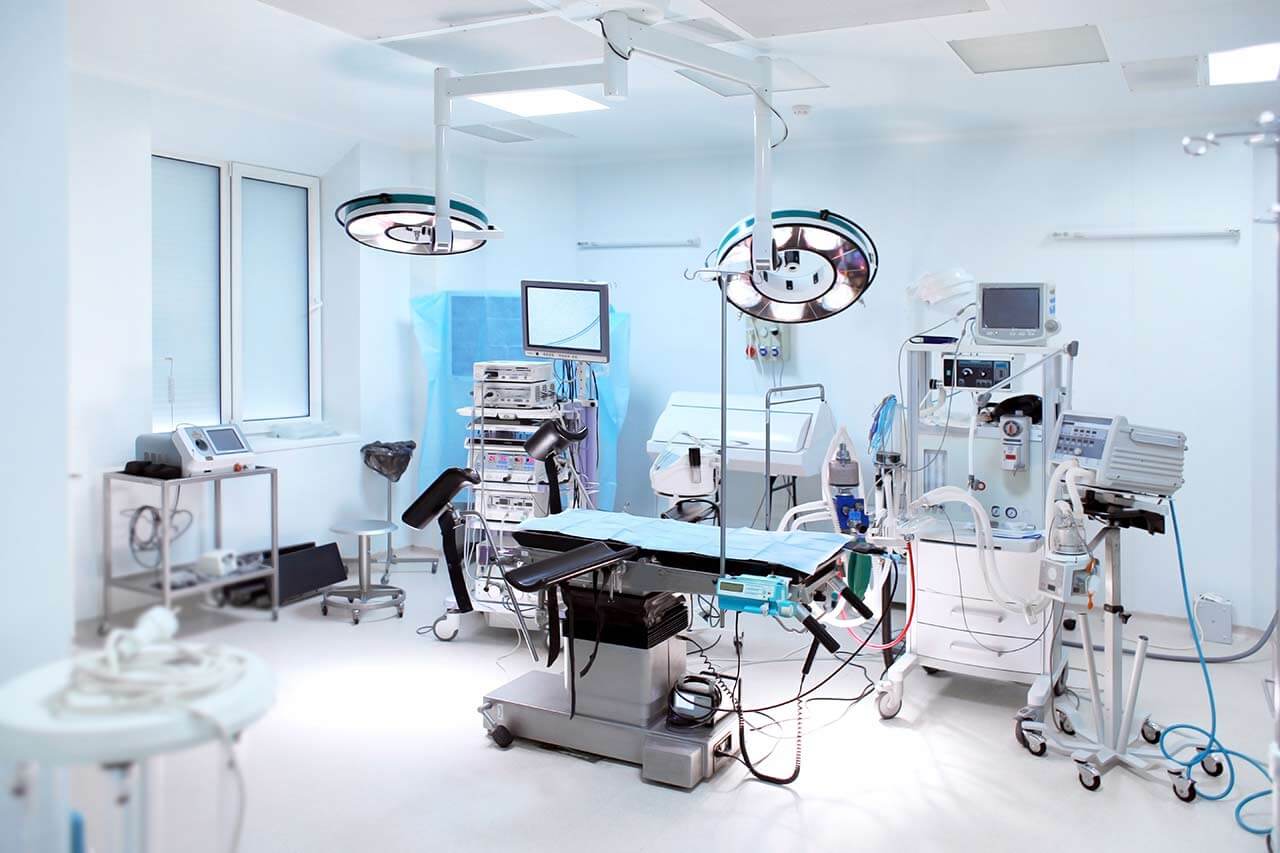
The program includes:
- Initial presentation in the clinic
- clinical history taking
- review of medical records
- physical examination
- laboratory tests:
- complete blood count
- biochemical analysis of blood
- Lipid metabolism (HDL/LDL, cholesterol,
triglycerides Lip(a), homocysteine) - blood coagulation analysis (aPTT, PT, INR)
- inflammation indicators (CRP, ESR)
- metabolic status (uric acid, total glucose, HbA1c)
- cardiovascular disease risk markers
- kidney function test (creatinine, urea)
- color doppler echocardiography
- color doppler sonography of cerebral and peripheral vessels
- duplex of abdominal aortic
- CT/ MRI-angiography of abdominal aortic
- preoperative care
- replacement of abdominal aortic section prothesis
- blood transfusions (if needed)
- 1-day intensive care unit stay
- symptomatic treatment
- control examinations
- the cost of essential medicines and materials
- nursing services
- full hospital accommodation
- developing of further guidance
Required documents
- Medical records
- Ultrasound scan, MR/CT-angiography (if available)
Service
You may also book:
 BookingHealth Price from:
BookingHealth Price from:
About the department
The Department of Adult and Pediatric Diagnostic, Interventional Radiology at the University Hospital Würzburg offers the full range of modern diagnostic and therapeutic procedures in this field. For this purpose, it has advanced medical equipment: magnetic resonance imaging (MRI), multispiral computed tomography (CT), duplex sonography and digital X-ray, fluoroscopy, etc. In the field of interventional radiology, the focus is on the treatment of vascular diseases, for example, the doctors of the department conduct special measures for dilating the vessels in peripheral arterial occlusive disease and closing the vessels in complicated bleedings. Also, the range of services in this field is complemented by the installation of drainage and port systems, punctures, and special percutaneous methods for tumor treatment. The Chief Physician of the department is Prof. Dr. med. Thorsten Bley, who has many years of clinical experience and regularly demonstrates high rates of successful treatment results.
A feature of the department is the Section of Experimental Radiology, which serves to conduct research on innovative procedures to improve diagnostic and therapeutic methods. Thanks to this, the department is able to offer patients unique techniques that are not available in other clinics.
The department also specializes in the modern imaging diagnostics in children and adolescents. All studies are conducted by specially trained doctors, on medical equipment adapted to the children's body and working with a minimal radiation dose. There are performed about 3,000 X-ray examinations, 9,000 ultrasound examinations, 2,000 MRI and 250 CT scans every year. All diagnostic procedures are performed in strict accordance with international standards of pediatric radiological diagnostics.
In October 2012, the department installed a new, modern "large-scale" MRI scanner, which, in addition to the full range of standard images, allows making full-body images, cardiographic studies, spectroscopy and diffusion images. MRI scans of the skull and spine are performed in collaboration with experienced neuroradiologists.
The goal of the medical team is to obtain all the necessary information about the child’s state of health using methods with minimal irradiation or without it. For example, the department applies the very latest ultrasound systems, harmonic imaging, contrast agents (for example, to diagnose reflux disease), ultrasound elastography. The advanced X-ray machines provide excellent image quality and minimal use of X-rays.
The diagnostic options of the department include:
- All types of ultrasound examinations, including high-resolution ultrasound, contrast-enhanced ultrasound
- Ultrasound diagnosis of the abdominal organs, intestines, kidneys and blood vessels
- Contrast-enhanced ultrasound of the liver and other organs
- Ultrasound-guided puncture (for example, puncture of the liver, kidneys, spleen, pancreas, lymph nodes, etc.)
- Preoperative lymph node labeling
- Computed tomography (CT), including contrast-enhanced dynamic CT
- Magnetic resonance imaging (MRI), also contrast-enhanced one
- Classic X-ray studies
- Fluoroscopy
- Mammography (breast diagnosis)
- Pediatric imaging diagnostics
- Ultrasound examinations of various organs
- Classic X-ray studies
- Computed tomography (CT)
- Magnetic resonance imaging (MRI)
- Other diagnostic services
The department offers the following methods of interventional radiology:
- Catheter procedures for the treatment of vascular stenosis and occlusion in the pelvis, lower limbs, kidneys – balloon dilation of the vessels or stenting (for example, percutaneous transluminal angioplasty)
- Treatment of acute ischemia of the lower extremities using local intra-arterial lysis at the stage of compensated ischemia (stage I and IIa) and surgical recanalization at the stage of uncompensated ischemia (stage IIb and III), removal of a blood clot by catheter aspiration
- Arterial embolization in acute arterial bleedings
- Minimally invasive treatment (stenting) of aortic ruptures, aortic aneurysms and aortic dissection
- Radiofrequency ablation for the treatment of liver cancer and liver metastases (usually ultrasound- or CT-guided)
- Transarterial chemoembolization (TACE) for liver cancer treatment
- Selective internal radiation therapy (SIRT) for the treatment of liver cancer, liver metastases in colorectal cancer, breast cancer and neuroendocrine tumors
- Transjugular intrahepatic portosystemic shunting (TIPS) for the treatment of portal hypertension
- Other therapeutic services
Photo of the doctor: (c) Universitätsklinikum Würzburg
About hospital
According to the FOCUS magazine in 2019, the University Hospital Würzburg ranks among the top national German hospitals!
The hospital is one of the oldest medical facilities in Germany. The centuries-old traditions of first-class treatment are combined with the very latest achievements of modern evidence-based medicine and advanced expert experience. The hospital is the maximum care medical center and covers all fields of modern medicine. The hospital has an impeccable international reputation and treats a large number of patients from other countries every year.
A distinctive peculiarity of the hospital is active interdisciplinary cooperation. A large number of diseases are diagnosed and treated within the specialized centers, which medical teams rely on the unique experience of treatment of a wide variety of clinical cases. For example, such centers include the General Cancer Center, the Stem Cell Therapy Center, the Breast Health Center, the Gastrointestinal Center, the Thoracic Surgery Center, etc. In total, the hospital has more than 40 centers of this kind. Therefore, the patients of the hospital are confident that they will be offered the most relevant treatment in accordance with the very latest medical recommendations.
In addition to the most advanced achievements and methods of modern medicine, the medical team of the hospital makes every effort to create a comfortable, friendly atmosphere, which promotes patient well-being and recovery.
Photo: (с) depositphotos
Accommodation in hospital
Patients rooms
The patients of the University Hospital Würzburg live in comfortable rooms made in a modern design and bright colors. The patient room includes a bed with a remote control, a bedside table with a sliding table, a wardrobe, a TV. The patient rooms have the possibility of Internet connection. The enhanced-comfort rooms are equipped with a safe, a fridge and upholstered furniture.
Meals and Menus
The patients of the hospital are offered a varied and tasty three meals a day. There is a daily choice of several menus, including a dietary one. In case of intolerance to any food, please inform the medical staff about your food preferences in advance. After that, you will be offered an individual menu. Also, the hospital houses the cafes and cafeterias with a wide assortment of drinks, fresh pastries, fresh salads, sweets and other dishes.
Further details
Standard rooms include:
Religion
Christian priests are available for the patients at any time. Representatives of other religions may be requested at any time.
Accompanying person
Your companion may stay with you in your room or at a hotel of your choice during the fixed program.
Hotel
You may stay at the clinic hotel or a hotel of your choice during the outpatient program. Our manager will help you choose the best option.





